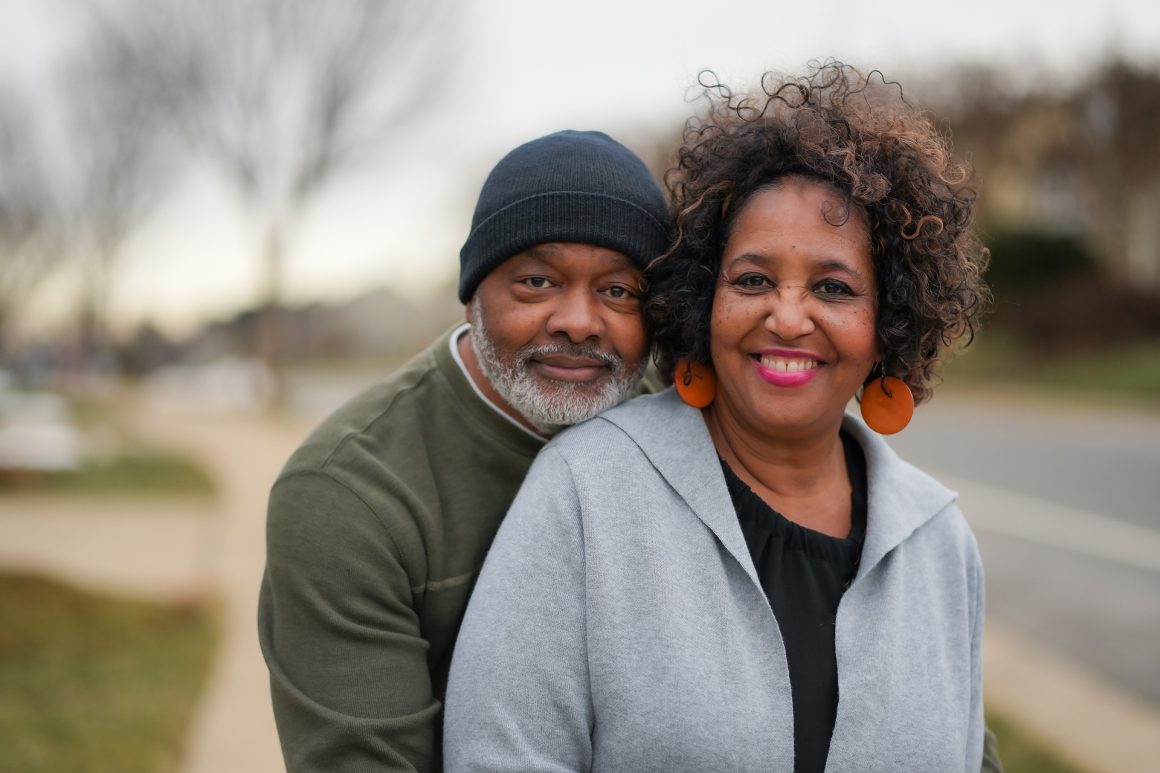Summary (TL;DR)
Reality TV’s “Love is Blind” highlighted the impact of witnessing parental infidelity on a contestant’s view of marriage. This common experience can damage a child’s perception of love and commitment. However, Black love goes beyond these challenges. By promoting healing, fostering healthy masculinity, and celebrating everyday examples of strong Black partnerships, we dismantle stereotypes. Therapy and open communication can help break cycles of trauma. Black love is resilient and offers hope for building loving, lasting relationships.
I don’t watch reality TV, but I do follow Netflix on Instagram. I was about to scroll past the “Love is Blind” video, but intuitively, something told me to watch it. In the video, Clay was having a conversation with his fiancée. He expressed doubts about marriage, citing a lack of positive examples among Black men. His words resonated with me because my father took me on his infidelity trips, just like Clay’s father did. This experience can leave a lasting impact on a child’s perception of love and relationships, making the journey towards healthy love even more complex.
Staying for the Wrong Reasons
My father was diagnosed with Narcissistic Personality Disorder (NPD) when I was young. I didn’t find out until much later, years after he passed away. After sharing my father’s behavior with my mother, she urged me to keep them from my stepmother. I empathize with the burdens Clay had to carry.
Growing up, I thought my maternal grandparents were an example of a happy marriage. But when my grandfather became ill, the cracks in their relationship became impossible to ignore. From the outside, they looked like a loving couple – he opened car doors, they held hands – but behind closed doors, they harbored deep resentment for one another.
Sadly, so many people commit to partners they’re ultimately incompatible with. When they realize their unhappiness is insurmountable, a complex mix of factors can make it incredibly difficult to change course. Children, financial entanglements, societal pressures – these and countless other situations contribute to people staying together for the wrong reasons. This is a universal problem, but, as Clay pointed out, it feels particularly prevalent within Black households. Statistics back this up: the Black divorce rate, at 30.8%, is the highest among major demographics.
When Clay said he lacked positive role models, it truly resonated. I found myself struggling to think of long-term, genuinely happy Black couples where both partners were thriving.
Clay’s story, however, doesn’t have to be the sole narrative of Black love. This article explores the challenges children face when they witness infidelity. We’ll delve into the importance of healthy masculinity, dismantle stereotypical media portrayals, and offer resources for those seeking to break the cycle of “brokenness” and build strong, lasting relationships.
The Ripple Effects of Infidelity
The pain of witnessing a parent’s infidelity goes far beyond hurt feelings. It can shatter a child’s sense of security and stability, leading to confusion about love, trust, and commitment. Clay’s parents’ conversation on the show perfectly illustrates this. His mother pleads for his father to take responsibility for his actions, acknowledging the need for closure and genuine apologies. These powerful moments highlight the lasting impact on children. They learn about love not just through words, but through the actions they witness at home.
Statistics back this up. Studies by the Journal of Family Psychology and Taylor & Francis Online report that 70% of adults who witnessed parental infidelity struggle with trust in romantic partners. These numbers underscore the importance of breaking the silence and addressing the emotional and psychological consequences of infidelity on children.
Healing and Healthy Masculinity
The journey towards healthy Black love starts with healing from the past. Children raised in environments with infidelity might struggle with anxiety, depression, and difficulty expressing emotions. Therapy, support groups, and open communication within the family can be instrumental in processing trauma and building healthy coping mechanisms.
It’s also crucial to redefine what it means to be a Black man in a relationship. Clay’s statement about lacking positive role models highlights a need for more stories of Black men who prioritize fidelity and emotional commitment. Black fathers who actively engage in their children’s lives, model healthy conflict resolution, and demonstrate respect for their partners become beacons of positive masculinity, shattering stereotypes and offering a roadmap for future generations.
Beyond Celebrity: Showcasing Black Love in All Its Forms
Media representation plays a significant role in shaping our perceptions of love. Clay’s focus on celebrity couples, often plagued by public drama and breakups, reinforces a limited view of Black relationships. Instead, we need diverse portrayals that showcase the strength and resilience of everyday Black love.
Look beyond the headlines, and you’ll find countless examples of Black couples who have built strong, enduring partnerships, but they are not in the spotlight. Celebrity couples like Denzel and Pauletta Washington, Angela Bassett and Courtney B. Vance, or Samuel L. Jackson and LaTanya Richardson Jackson serve as testaments to the power of commitment, communication, and ongoing growth within Black love. It’s vital to celebrate these stories and amplify them to challenge stereotypical narratives.
Breaking the Cycle: Hope and Resources
Clay’s mother’s powerful statement urging him to break the cycle of “brokenness” resonates deeply. Healing from past trauma is crucial before embarking on new relationships. Therapy can provide a safe space to process past experiences and develop healthier relationship patterns.
Many resources are available for individuals seeking support. The American Psychological Association offers a guide to finding a therapist, while organizations like The Gottman Institute and The National Healthy Marriage Resource Center provide resources specifically focused on strengthening relationships.
Black Love: A Story of Resilience and Hope
Black love is more than just a hashtag. It’s a beautiful tapestry woven from resilience, strength, and a deep desire for connection. While challenges exist, the stories of countless couples, strong Black communities, and a growing movement towards healing offer immense hope for the future. By focusing on healthy relationship skills, open communication, and the importance of healing from past trauma, we can empower individuals to build strong, loving partnerships and shatter the cycle of “brokenness.”
Let’s continue to celebrate Black love in its myriad forms, not just on social media, but through our actions and by actively seeking out and sharing stories that showcase its beauty and power.






